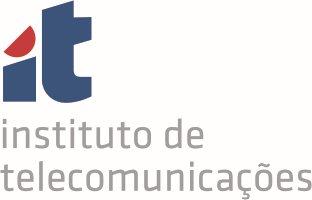Why Looking for Beyond OFDM in 5G Wireless Network Systems?
Faouzi Bader
Supélec-France
Abstract
It is too early to exactly define what the 5G wireless communication networks will be at this moment. However, the 5G radio access must cope with very different requirements and to be able to interact and coexist with different devices (standards) in an heterogeneous communication environment, and support communications in some special scenarios not envisaged by 4G networks. There is no doubt that multicarrier (MC) scheme will still be considered as the most appropriate scheme for spectrum coexistence and secondary access in future 5G systems due its flexibility in allocating different resources among different users as well as its ability to fill the spectrum holes left by the primary users. A look on the effect of the communication waveform choice on the system performance ( i.e. capacity and guard band) will be addressed considering the coexistence with narrow band communications and in scenarios with synchronisation relaxation/loss.
Bio
Faouzi Bader received his PhD degree (with Honours) in Telecommunications in 2002 from Universidad Politécnica de Madrid (UPM), Madrid-Spain. He joined the Centre Technologic de Telecomunicacions de Catalunya (CTTC) in Barcelona-Spain as research associate in 2002, and From 2006-2013 as Senior Research Associate. Since June 2013, he is as associate professor at École Supérieur D'Electricité- SUPELEC in France. His research activities mainly focus on IMT-Advanced systems, cross layer system design, multicarrier waveforms (OFDM(A), (non-) uniform multimode filter based multicarrier schemes) and frequency allocation in relay cognitive environment. He has been involved in several European projects from the 5th-7th EC research frameworks, and from 2012-2013 the general coordinator and manager of the EC funded ICT "EMPhAtiC" project focusing on "Enhanced Multicarrier Techniques for Professional Ad-Hoc and Cell-Based Communications".
He has published over 100 papers in peer-reviewed journals and international conferences, more than 13 book chapters, and 3 books. He served as Technical Program Committee member in major IEEE ComSoc and VTS conferences (ICC, PIMRC, VTC spring/fall, WCNC, ISWCS, GLOBECOM, ICT), and also as Session Chair member (WCNC, PIMRC, VTC-Spring/Fall) over last years, the general chair of the eleventh edition of the ISWCS'2014 conference, and the co-chair of the ISWCS 2015 edition.
He was co-Chair of the special session on “Filter Bank Multicarrier PHY versus OFDM for Unsynchronized Cognitive Radio Networks” at CrownCom'2010, and co-Chair of several special sessions on “Mobility concepts and IMT-Advanced” systems (in ICST Mobilight’2010, ICST Mobimedia’2010, and ICST Monami’2010), guest editor of the special issue on “Filter Banks for Cognitive Next Generation Multicarrier Wireless Communications,” which appeared in EURASIP ASP journal in 2011, co-Chair of the special session on “ Technical Enablers and Platforms for Cognitive Radio“ at EUSIPCO’2011, co-Chair of the special session on “ Cognition in Green Next Generation Networks” at the IEEE ISWCS’2011 conference, guest editor for special issue on: "Advances in Flexible Multicarrier Waveforms for Future Wireless Communications", in EURASIP Journal on Advances on Signal Processing (JASP) at November 2013, and the organiser at the ICT network of excellence in wireless communication (Newcom#) summer school on "Flexible Waveforms for Future Communications Wireless Networks", at Supélec, Rennes-France at SUPELEC Rennes- in May 2014. He acts as reviewer for several IEEE Trans., IET, EURASIP journals and magazines, and he is IEEE Senior Member from 2007.
A Perspective of the Networks of the Future and Smart Cities
Luis M. Correia
IST/INOV-INESC - University of Lisbon, Lisbon, Portugal
Abstract
A parallel in the evolution between mobile and wireless communications and other areas (computers and cars) will be presented, in an attempt to identify possible directions for systems future evolution. A look into already existing technologies will enable to establish a perspective for future user interface devices and services (e.g., information access, Internet of Things, and geo-location). Then, potential services are identified, after which research challenges for mobile and wireless communications networks are addressed (e.g., network virtualisation, cloud networking, and networks of information). Smart Cities are taken as an integration example, as well as a perspective of application to other key sectors (e.g., health, transport, and energy). The link with other areas, and impact on regulation, standardisation, and policy matters are presented at the end.
Bio
Luis M. Correia was born in Portugal, on 1958. He received the Ph.D. in Electrical and Computer Engineering from IST (University of Lisbon) in 1991, where he is currently a Professor in Telecommunications, with his work focused in Wireless/Mobile Communications in the areas of propagation, channel characterisation, radio networks, traffic, and applications, with the research activities developed in the INOV-INESC institute. He has acted as a consultant for Portuguese mobile communications operators and the telecommunications regulator, besides other public and private entities, and he is in the board of a telecommunications company. Besides being responsible for research projects at the national level, he has participated in 28 ones within the European frameworks of RACE, ACTS, IST, ICT and COST, where he also served as evaluator and auditor, having coordinated 3 of them and taken leadership responsibilities at various levels in many others. He has supervised more than 160 M.Sc. and Ph.D. students, having edited 6 books and authored more than 380 papers in international and national journals and conferences, for which he has served also as a reviewer, editor, and board member. At the international level, he has been part of 26 Ph.D. juries, and evaluated research projects and institutions for funding agencies in 8 countries. He has been the Chairman of the Technical Programme Committee and a member and chair of the Steering Committees of several major conferences. He was a National Delegate to the COST Domain Committee on ICT. He was active in the European Net!Works platform, by being a member of its Expert Advisory Group and of its Steering Board, and the Chairman of its Working Group on Applications. He has been elected for the European 5G PPP Association.





































